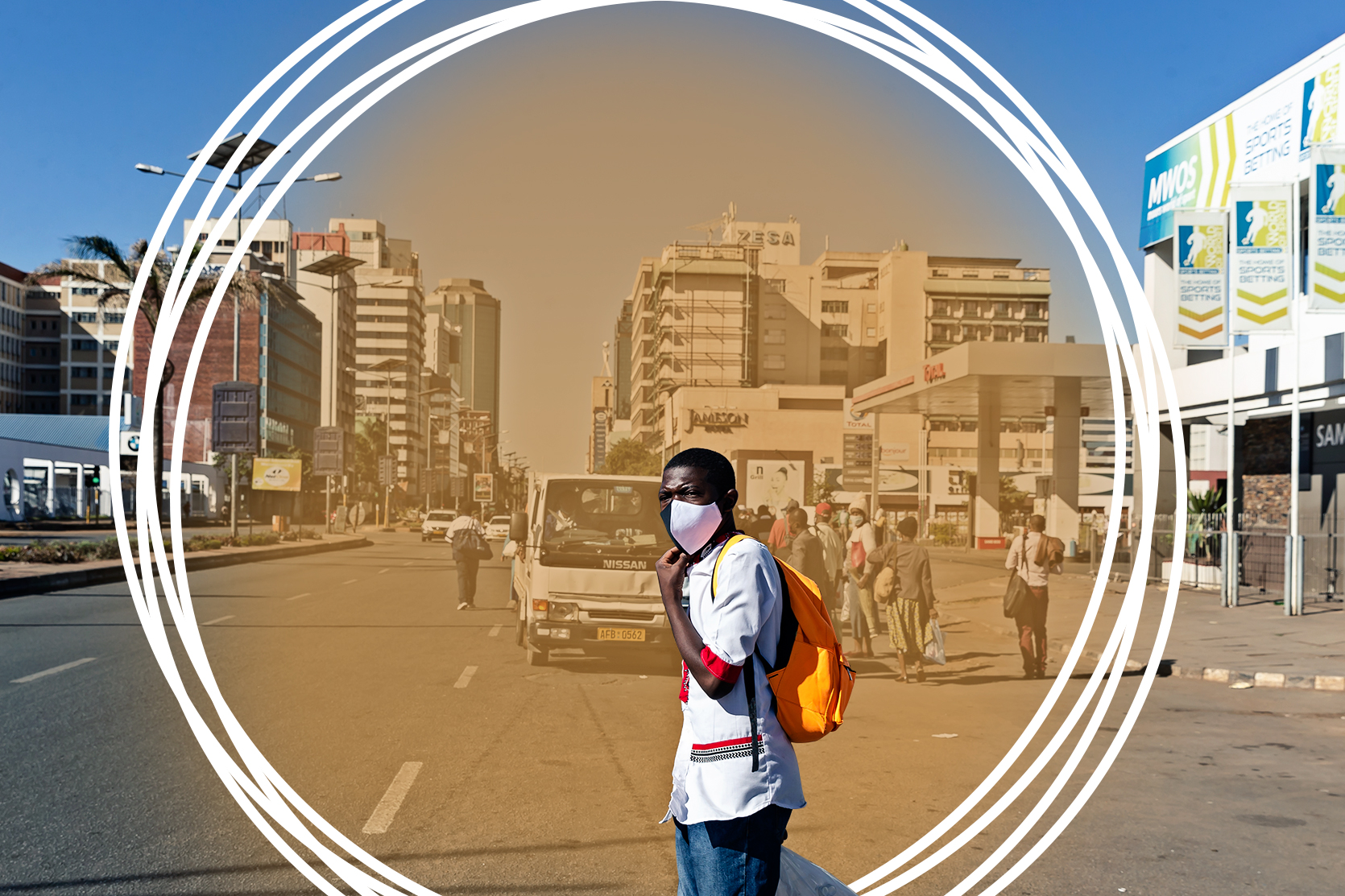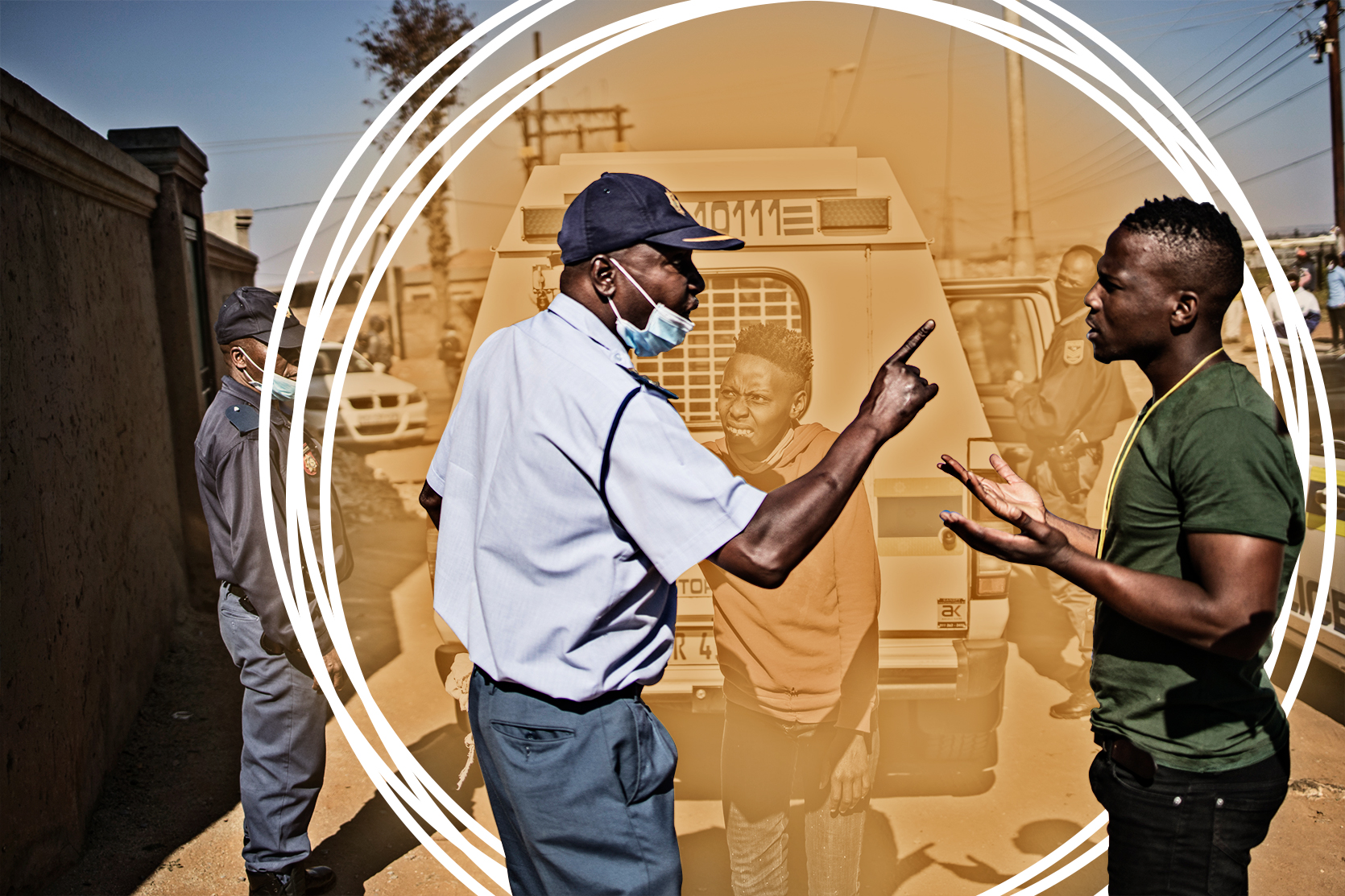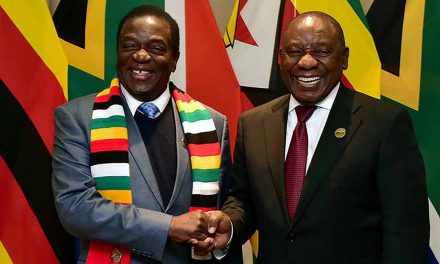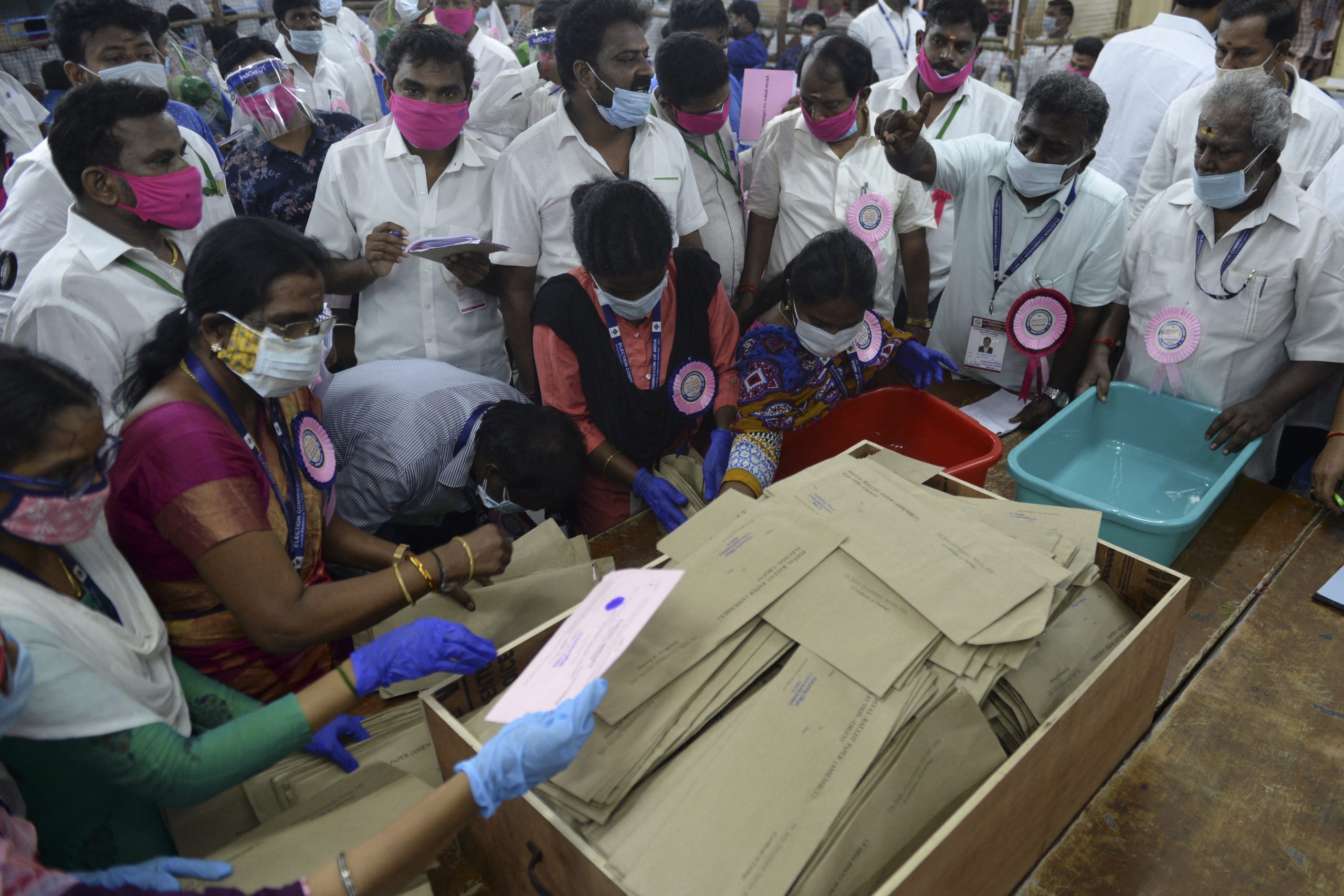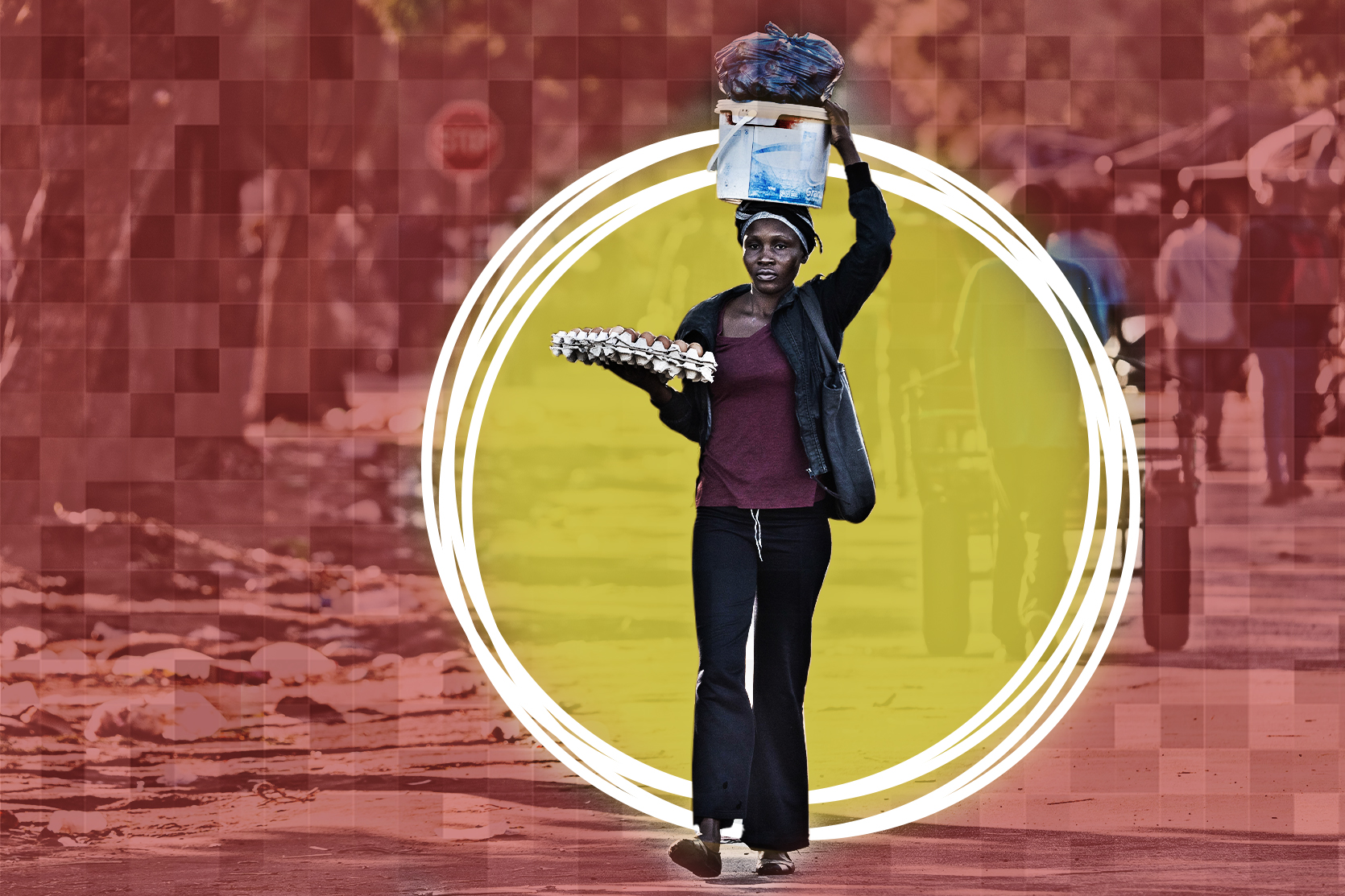
As captured by Finance Minister Mthuli Ncube’s desperate plea for $200 million in a letter to IMF Managing Director Kristalina Georgieva on April 2, the Covid-19 pandemic could not have struck Zimbabwe at a worse time.
The southern African nation recorded its first case on 20 March, 10 days before President Emmerson Mnangagwa announced a 21-day national lockdown. But the lockdown has been progressively eased with time. Initially, only companies deemed to be offering essential services were allowed to operate, before more firms were allowed to open after adopting measures which include ensuring social distancing and reduced working hours.
The Covid-19 pandemic could not have struck Zimbabwe at a worse time.
“The global Covid-19 pandemic is expected to have a devastating health, humanitarian and economic impact on Zimbabwe,” Ncube wrote. He projected that Zimbabwe’s economy could contract by between 15 to 20% during 2019 and 2020. Needless to say, this is a massive contraction with very serious social consequences for a country already burdened with governance problems.
Even before the pandemic struck, Zimbabwe was faced with the impact of climate change in the form of Cyclone Idai and successive droughts, which have rendered some 8.5 million Zimbabweans, or half of the population, food insecure. Health services are inadequate and extreme poverty levels are rising.
He projected that Zimbabwe’s economy could contract by between 15 to 20% during 2019 and 2020.
According to a World Bank country overview, extreme poverty is estimated to have risen from 29% in 2018 to 34% in 2019, an increase from 4.7 to 5.7 million people. A January 2020 Child Poverty Report by Jeffrey Alwang and the Zimbabwe National Statistics Agency revealed that 76.3% of rural children and 20% of children in urban areas are living in poverty.
Ncube wrote that he expected these indicators to worsen. He also warned that the crisis in Zimbabwe could destabilise the Southern African Development Community.
76.3% of rural children and 20% of children in urban areas are living in poverty.
Meanwhile, Zimbabwe’s economy has been hamstrung by a number of problems, among them a debilitating liquidity crunch, acute fuel and foreign currency shortages, currency volatility and low capacity utilisation as well as runaway inflation, which has galloped to nearly 800%. Few commentators doubt that these problems are the result of corruption, ill-thought out and poorly implemented government policies, and policy inconsistency.
The Confederation of Zimbabwe Industries’ (CZI) manufacturing survey, released in February, revealed that capacity utilisation for 2019 stood at 36,4% after dropping by 11,8% points from 48% in 2018. The CZI further projected that capacity would drop to a paltry 27% this year. CZI chief economist Tafadzwa Bandama said the slowdown would result in higher unemployment, rising poverty levels, a shortage of goods and services, inflation, reduced aggregate demand, low export volumes, and increased shortages of foreign currency.
“Covid-19 could choke the life out of an economy that was already gasping for air” while exposing massive job losses and a further drop in capacity utilisation, according to a report the industrial body released in early May on the impact the Covid-19 pandemic would have on the country’s productive sector. Businesses were faced with a trade-off between containment measures and continued economic activity.
“Covid-19 could choke the life out of an economy that was already gasping for air”.
The report noted that the national lockdown had caused the capacity utilisation levels of firms producing hygiene products and personal protective equipment (PPE) to decline – notwithstanding the fact that such goods were in high demand. The need to meet social distancing requirements meant fewer employees were reporting for work, contributing to the decline in capacity utilisation, the survey revealed.
To remain viable, companies have adopted a range of measures, including staff “rationalisation” (43%), managing overheads and toll manufacturing (18%), providing PPE (15%), product diversification, creating new markets and exports (12%), bailouts from head offices or drawdowns on savings (8%), asking staff to work from home or providing transport and accommodation (2%), and increasing levels of imported and local raw material stock (1%), while the remaining 1% were “still assessing the situation”.
Firms taking the staff “rationalisation” route did so through a range of measures, including reducing labour costs by the non-renewal of fixed-term employment contracts, retrenching permanent and temporary employees, sending staff on leave and implementing salary cuts, among others.
The layoffs and salary cuts have negatively affected the working class. Leonard Nyabeza, of Harare’s Warren Park D district, says he was earning ZW$4000 ($40) before the lockdown, but his employer cut his monthly hours and salary by half. The remaining money is just enough to pay the rent for the two rooms his family lives in. “I have no money to feed my wife and three children. We are surviving on one meal a day,” he says. Most of his friends are in the same predicament.
“I have no money to feed my wife and three children. We are surviving on one meal a day”
The World Bank estimates that Zimbabwe’s economy could shrink by 10% this year, according to its Global Economic Prospects June 2020 report. In its Regional Economic Outlook June 2020 update for sub Saharan Africa, the International Monetary Fund (IMF) estimated that Zimbabwe would see a -10,4% GDP growth contraction in 2020. Economic activity in the region was projected to shrink by 3,2%, partly because of Covid-19.
Clearly, Zimbabwe is in a far more difficult position than its regional peers. Only Seychelles at -13,8% and Mauritius at -12,2% are expected to fare worse than Zimbabwe in terms of GDP growth contraction.
The World Bank estimates that Zimbabwe’s economy could shrink by 10% this year.
In a televised speech on 1 May, President Emmerson Mnangagwa justified the continued partial lockdown, despite Zimbabwe’s precarious economic situation, saying it was critical to contain the spread of the virus. Mnangagwa also announced a ZW$18 billion (about $430 million) Economic Rescue and Stimulus Package, which he said was designed to scale-up production in all sectors of the economy in response to the adverse effects of Covid-19.
Of the total, ZW$3 billion was reserved for the manufacturing sector and ZW$6,1 billion for agricultural production, while a credit support facility of ZW$1 billion was set up for the mining sector. An additional ZW$1 billion was set aside for the health sector for the procurement of Covid-19 testing kits, PPEs and for the purchase of drugs.
Tendai Biti, a former finance minister, said the money allocated to mitigating the effects of Covid-19 was not enough to save Zimbabwe’s ailing industries. He told the Zimbabwe Independent in June that at least $1 billion was needed. CZI President Henry Ruzvidzo described the stimulus for industry as “a modest amount given the challenges faced by industry”.
Tendai Biti, a former finance minister, said the money allocated to mitigating the effects of Covid-19 was not enough to save Zimbabwe’s ailing industries.
While putting aside money to revitalise industry, the government ordered local authorities to destroy informal markets, destroying thousands of jobs in the process. The move was slammed by trade unionists, human rights activists and church organisations. The informal sector is a major employer. An IMF 2018 report on shadow economies revealed that Zimbabwe’s informal sector contributes 60,6% of GDP.
“What are we supposed to do?” asked Misheck Mashonganyika, a Kuwadzana resident who trades in Mbare. “They have destroyed the economy and there are no jobs. Should we all become thieves?” The government was forcing citizens to choose between dying from hunger or from Covid-19, he added. “I cannot watch my family die from hunger. Even if it means playing cat and mouse with the police, I will continue vending, so I feed my family.”
Covid-19 cases are rising in Zimbabwe and had reached 716 as of 5 July, claiming eight lives. There are fears that the pandemic could sound the death knell to an already fragile economy, further increasing rampant joblessness and poverty. Zimbabwe’s existing problems are greatly exacerbated by the pandemic.
We’d love to hear from you! Join The Wicked Conversation by leaving your comments below, or send your letter to the editor to richard@gga.org.
Owen Gagare is the assistant editor of the Zimbabwe Independent, a weekly newspaper, covering
business, politics and investigative stories. He has previously worked for NewsDay and the Chronicle.
Owen has also written for the Mail and Guardian and has a passion for investigative and in-depth
stories as well as human rights and governance issues.
He is based in Harare, Zimbabwe.



